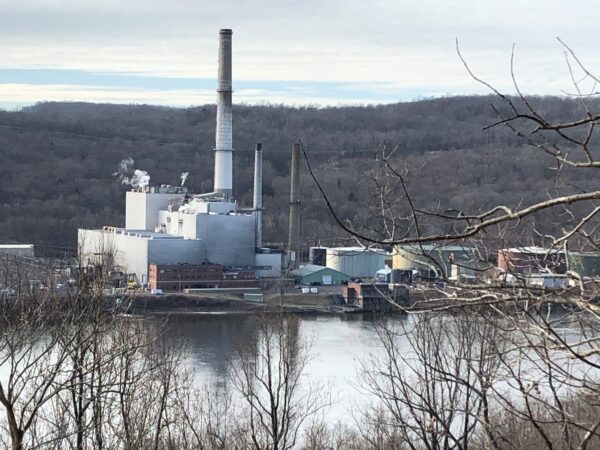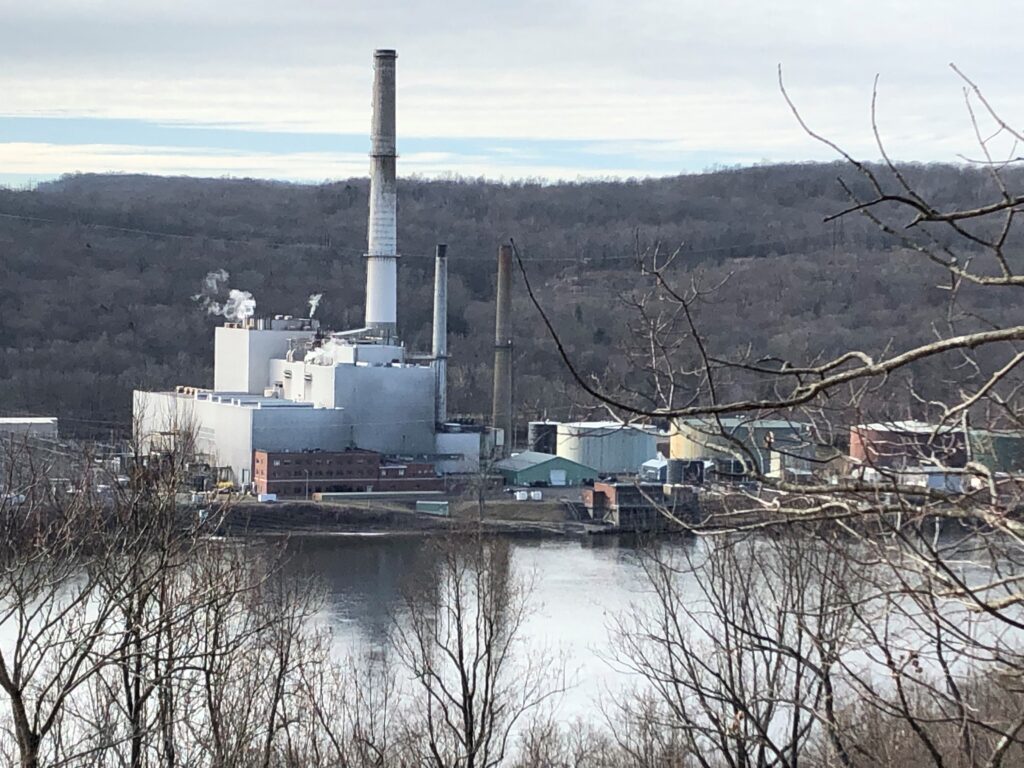
NRG power plant in Middletown as seen from the Air Line Trail in Portland. Photo by John Hall.
Middletown’s Common Council held a public workshop on the NRG plant on Thursday, February 11, on WebEx. Citizens joined the meeting in large numbers, most speaking in strong opposition to the proposed new 375 megawatt combustion turbine generator at the NRG Middletown power plant at 1866 River Road. We wish to thank everyone who attended and spoke. It made a big difference!
The recording of the presentations, public comment, and Common Council members questions can be viewed here.
The new turbine would replace 2 old turbines which, due to their inefficiency, outdated technology, and high emissions per megawatt hour of electricity produced, are permitted to run only a few days per year during time of peak demand. (Peak demand occurs mainly in summer during heatwaves.) Because of the new turbine’s greater efficiency, NRG requested an emissions permit that would allow it to run many more hours in the year, resulting in higher total emissions of CO2, Nitrogen Oxides (NOx), Sulphur dioxide (SO2), and soot (particulate matter).














